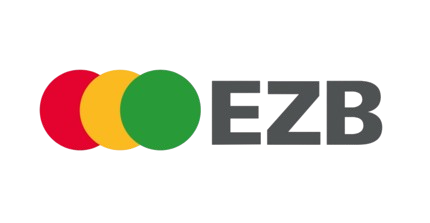Promocija programa obrazovanja odraslih u Bosni i Hercegovini / Promotion of Adult Education Programs in Bosnia and Herzegovina
DOI:
https://doi.org/10.48052/19865244.2023.1.371Keywords:
marketing of higher education institutions, promotion, adult educationAbstract
Awareness about the importance of marketing of higher education institutions has been steadily growing amongst decision makers on international level. That trend is particularly noticeable in case of adult education programs, which need continual promotion since it is a type of non-formal education. In Bosnia and Herzegovina private universities and private providers of non-formal education programs have been promoting adult education for some time now. At the same time public universities, mainly influenced by the marketing myopia phenomenon, use promotional activities only sporadically. Therefore, for the purpose of improving promotion of adult education programs in public universities, a qualitative exploratory study has been conducted. The aim was to investigate attitudes and opinions of adults about promotion activities for adult education programs. Data was collected through focus groups from representatives of four generations: Baby Boomers, Generation X, Y and Z. Research results show that different generations have different needs and expectations when it comes to adult education programs. A generally positive attitude towards adult education programs has emerged. Values have been identified which could be communicated through promotion activities. Based on research results several recommendations are given for improvement of adult education promotion. Research results presented in this article directly contribute to achieving UNESCO's Education for Sustainable Development 2030 agenda (priorities 1, 2, 3 and 5), contributing further indirectly to achieving Sustainable Development Goals 4, 8 and 10.
References
Alarcón-del-Amo, M., Casablancas-Segura, C., Llonch, J., 2016. Responsive and proactive stakeholder orientation in public universities: antecedents and consequences. Higher Education, 72 (2), str. 131–151.
Avdagić, E. 2016. Menadžment modeli u organizacijama za obrazovanje odraslih, Sarajevo: DVV International – Ured za BiH
Babić-Hodović, V., 2010. Marketing usluga: koncept, strategije i implementacija. Sarajevo: Ekonomski fakultet.
Babić-Hodović, V., Činjarević, M., 2009. Uticaj percepcije kvaliteta usluga edukacije na lojalnost klijenata. Zbornik radova Naučno–stručni skup sa međunarodnim učešćem ''KVALITET”, str. 737-744.
Bell, L., 2002. Strategic planning and school management: Full of sound and fury, signifying nothing? Strategic Planning and Management, 40 (5), str. 407-424.
Berberović, D. 2018. Consumer identity construction in marketing: Understanding symbolic consumption of the diaspora market segment. Doktorska disertacija, Sarajevo: Ekonomski fakultet.
Brkić, N. 2003. Upravljanje marketing komuniciranjem, Sarajevo: Ekonomski fakultet u Sarajevu.
Bugandwa, D. M. A., 2009. Is market orientation a relevant strategy for higher education institutions? International Journal of Quality and Service Sciences, 1 (3), str. 311 – 333.
Čerkez, A., Avdagić, E. 2018. Funkcija marketing menadžmenta u organizacijama za obrazovanje odraslih. Obrazovanje odraslih, Bosanski kulturni centar KS i DVV International – Ured za Bosnu i Hercegovinu, 1, str. 49–72.
Filip, A., 2012. Marketing theory applicability in higher education. Procedia – Social and Behavioral Sciences. 46, str. 912–916.
Gibbs, G. 2007. Analyzing Qualitative Data. London: Sage.
Gronroos, C., 2006. Adopting a service logic for marketing. Marketing Theory, 6 (3), str. 317-333.
Gronroos, C., 2016. Service Management and Marketing: Managing the Service Profit Logic. New York: Wiley.
Hammersley, M., Traianou, A. 2011. Moralism and research ethics: a Machiavellian perspective. International Journal of Social Research Methodology 14 (5), str. 379-390.
Kotler, P., Armstrong, G., 2016. Principles of Marketing. UK: Pearson.
Kotler, Ph., Keller, K.L. 2007. Upravljanje marketingom. 12. izdanje. Zagreb: Naklada Mate.
Lysytsia, N., Martynenko, M., Prytychenko, T., Gron O., Us M., 2019. Prospects for innovations in marketing of economic educational services in Ukraine. Entrepreneurship and Sustainability Issues, 6 (4), str. 1771–1783.
McGrath, M. J., 2002. Attitudes about Marketing in Higher Education: An Exploratory Study. Journal of Marketing for Higher Education, 12 (1), str. 1–14.
Mashhadi, M.M., Mohajeri, K., Nayeri, M.D., 2008. A quality-oriented approach toward strategic positioning in higher education institutions. World Academy of Science, Engineering and Technology, 37, str. 338–342.
Maringe, F., 2005. University Marketing: Perceptions, Practices and Prospects in the Less Developed World. Journal of Marketing for higher education, 15 (2), str.129–153.
Miočič, I. 2018. Fleksibilnost studije slučaja: prednost ili izazov za istraživače? Ljetopis socijalnog rada, 25 (2), str. 175–194.
Nicolescu, L. 2009. Applying marketing to higher education: Scope and limits. Management & Marketing, Vol.4, No.2. Bucharest: Editura Economica, str. 35–44.
Oplatka, I., Hemsey-Brown, J., 2010. The Globalization and Marketization of Higher Education: Some Insights from the Standpoint of Institutional Theory. U Maringe, F., Foskett, N., Globalization and internationalization in higher education. London: Continuum.Str. 65-82.
Patton, M. Q. 2015. Qualitative research & evaluation methods. Thousand Oaks: Sage.
Pickton, D., Broderick, A., 2001. Integrated Marketing Communications. UK: Pearson Education ltd.
Polit, D.F., Beck, C.T., 2010. Generalization in quantitative and qualitative research: myths and strategies. International Journal of Nursing Studies, 47, str. 1451-1458.
Richards, L. O’Shea, J., Connolly, M., 2004. Managing the concept of strategic change within a higher education institution: the role of strategic and scenario planning techniques. Strategic Change, 13, str. 345–359.
Rivera-Camino, J., Ayala, M. V., 2010. Market orientation at universities: Construct and exploratory validation. Innovar: Revista de Ciencias Administrativas y Sociales, 20 (36), str. 125–138.
Robson, C. 2002. Real world research. Oxford: Malden.
Rotman, D., 2013. How Technology Is Destroying Jobs. Technology Review -Manchester Nh, 116 (4), str. 28–35.
Smidt, H., Sursock, A., 2011. Engaging in Lifelong Learning: Shaping Inclusive and Responsive University Strategies. European University Association.
Soutar, G.N., Turner, J.P., 2002. Students’ preferences for university: a conjoint analysis. The International Journal of Educational Management, 16 (1), str. 40–45.
Tankrikulu, C., Gelibolu, L., 2015. The Impacts of Perceived Market Orientation in Higher Education: Student as a Customer. Revista de Cercetare si Interventie Sociala, 49, str. 156–172.
Yin, R. K. 2007. Case study research: design and methods. Thousand Oaks: Sage.
Downloads
Published
How to Cite
Issue
Section
License
Copyright (c) 2023 Pregled: časopis za društvena pitanja / Periodical for social issues

This work is licensed under a Creative Commons Attribution-NonCommercial 4.0 International License.














